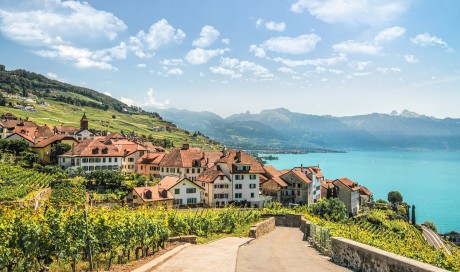The inauguration of Turkey’s presidential system, and the swearing-in of Recep Tayyip Erdogan as the country's first plenipotentiary president on Monday, took place with the conscious grandeur befitting a country that believes it is once more destined to play a leading world role. It was a dazzling display, despite rainy weather in Ankara.
There were blue-jacketed presidential cavalry in attendance. The presidential luxury sedan was almost snowed under with rose petals and carnations as it carried Erdogan to parliament, and then on to the Mausoleum of Kemal Ataturk, the founder of the Turkish Republic. At the presidential palace, hundreds of high-ranking visitors sat in the open air and watched the president's inaugural speech.
By evening, it was clear that these events had not been simply ceremonial. A revolution in government had taken place, intended to be the biggest change in the country since the end of the Ottoman Empire and the proclamation of the republic in 1923. Its intention is to create a rapidly moving administrative machine, guided personally by the president, to ensure Turkey's place as a "great and strong country".
Three decrees
The upheaval in Turkey is more drastic than anything in the preceding 16 years since the ruling Justice and Development Party (AKP) came to power. Its effects will take many years to be revealed in full, but they will be felt in every area of the nation's life almost immediately.
An entirely new governmental system has been mapped out. Though the change was approved in a referendum in April 2017, it is only now that the specific details are becoming clear as arrangements are made. These were outlined in three decrees over the weekend.
The country will now be ruled from the presidential palace at Bestepe by Erdogan via a set of boards that report to him. The boards will focus on areas including science, education, economics, security, law, culture and health, with a goal to speed up the process of government and brush away what is seen by the president and his lieutenants as a restrictive cobweb of complex departmental requirements.
Heads of government agencies have long privately complained that regulations have cramped them from carrying out reforms and innovations. Now, those restraints are gone. Positions such as ministry undersecretaries have been abolished, and departments such as directors-general have been scrapped or merged.
There will continue to be a Cabinet, but it will be a more pragmatic executive body than its predecessors, with only 16 members - and there will be no prime minister and no answerability to parliament. None of the ministers comes from the new Grand National Assembly, and ministers are no longer allowed to be MPs.
Little political background
In a few departments, there will be continuity. Three key ministers from the last government are being retained: Foreign Minister Mevlut Cavusoglu, Justice Minister Abdulhamit Gul, and Interior Minister Suleyman Soylu. In addition, the former energy minister, Berat Albayrak, who is also the president's son-in-law, becomes finance minister, while the chief of general staff, General Hulusi Akar, will become a civilian and take over the post of defence minister.

The four ministers being retained from the previous cabinet were re-elected as MPs last month but have now left the assembly.
...[ Continue to next page ]
Share This Post












